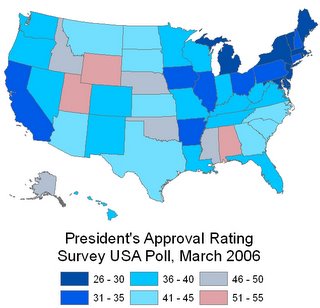After criticizing Congress’s reaction to the Dubai ports deal (and the administration’s incompetence in supporting its position), I received some astute criticism from a reader that led me to reconsider and started me thinking about issuing a mea culpa. But fortunately procrastination carried the day and I did nothing. Now that Dubai Ports World is trying to extricate itself, and Republicans are falling over themselves trying to end their disagreement with President Bush, I’ve concluded that I was right to begin with.
This whole fiasco is purely politics. None of the politicians can think beyond the immediate political gain of being for “security” and by implication against the Arabs. If the situation is looked at with some disinterestedness, a number of questions arise that no one is considering.
Who operates American ports today? Almost always large foreign companies usually aligned with the ship operators who also are rarely American owned.
If Dubai Ports World has to sell (or transfer) the American operation, what American company will be able to purchase it and have the experience to operate the ports?Apparently there is only one American company, located in Seattle, in the top ten companies running American ports. They are a family-owned business and might be stretched beyond their capability if they have to add on New York, New Jersey, Philadelphia, Baltimore, Miami, and New Orleans.
What message does this action send to the world?The same one killing the Chinese oil deal last year did. We are all for globalization as long as it benefits us. We don’t like foreigners, especially from the Middle East. We’ll just blindly ignore our immense deficit, even though most of it is funded by these same countries we are stopping from investing in the US. If Dubai is insulted by our actions, and decides to make its planned large purchase of airliners from Airbus, rather than from Boeing – well we really hadn’t thought through the implications of our actions. Of course, we didn’t in Iraq so why should we start now.
Who is the enemy?We can’t seem to figure that out with any kind of specificity. I thought it was Al Qaeda after 9/11 and still do. The Bush Administration thinks it is Iraq. Congress thinks it’s a company controlled by a friendly Arab country.
What is the real issue?It’s Port Security! We have almost no security in our ports. Around 1% of the containers shipped into the US are inspected. The rest just get loaded onto trucks and shipped anywhere. These things are large enough to contain WMD of any description. Every knowledgeable person who has commented on this controversy has said port operation is the least concern of those worried about security.



